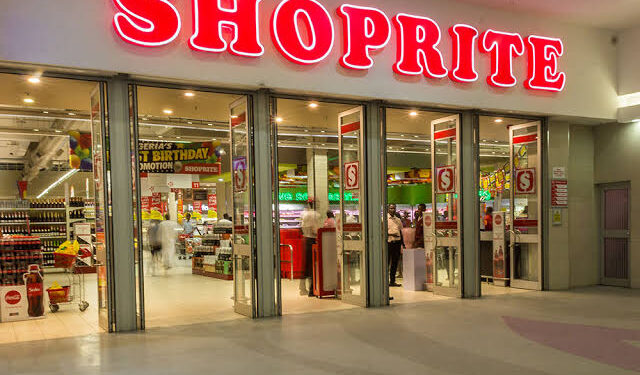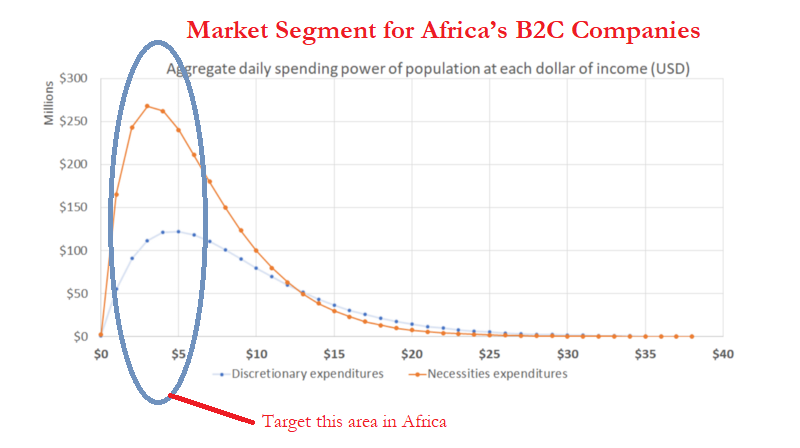
Shoprite Wuse Abuja gives up as the economic paralysis in Nigeria accelerates: “Retail Supermarkets Nigeria Limited (RSNL), the operators of Shoprite Mall, has announced its decision to cease operations at its Wuse, Abuja branch. The closure, set for June 30, 2024, is attributed to the challenging business climate in Nigeria and the financial performance of the store.”
Just like Mr Price, Woolworths, and other South Africa brands which packed and left Nigeria, Shoprite 1.0 followed. But of course, some Nigerians kept the brand in the nation. Unfortunately, what brought the firm to Nigeria [expanding middle class] has since punted or even degraded, and ShopRite’s business is under severe stress.
Running a majorly-grocery chain in Nigeria is challenging, considering that every corner of the major cities has an open market. Those open markets are asymmetric competitors as they do not pay VAT, corporate taxes, etc, and most times source produce from the same places companies like Shoprite also get their products. When the purse is heavy, you can enter Shoprite to enjoy shopping in the air-conditioned ecosystem, but under lite purses, open markets become the main option.
Register for Tekedia Mini-MBA edition 19 (Feb 9 – May 2, 2026): big discounts for early bird.
Tekedia AI in Business Masterclass opens registrations.
Join Tekedia Capital Syndicate and co-invest in great global startups.
Register for Tekedia AI Lab: From Technical Design to Deployment (next edition begins Jan 24 2026).

This struggle is not on Shoprite; it is a lesson for any person running a business in Nigeria. Simply, you must innovate on your pricing: “This is the age of sachetization in Nigeria irrespective of whatever you are selling”.
Shoprite has a problem because the best customer segment has shrunk: “the most significant opportunity for African B2C startups lies with consumers who earn between $4 — $8 per day … This is largely because that income band holds the highest concentration of discretionary spending power on the continent, as the graph below shows.” That band is under attack.
In 2021, I modeled that 30 million was in that band: “Yes, we have about 30 million people with decent income supporting more than 200 million, using tax numbers and informal sector upper estimates.” That number today is less than 18 million. So, if you are running a business in Nigeria, you must adjust your pricing strategy and price smartly.

“We regret to inform you that as of June 30, 2024, Retail Supermarkets Nigeria Limited will be closing its Wuse Store located in Novare Wuse Central Mall, Abuja. This decision has been made after a thorough evaluation of the store’s financial situation and the current business climate. We believe this is the best course of action for our organization’s long-term growth.”
“Effective June 30, 2024, our company will no longer operate in Wuse, Abuja, and we will no longer require your services for the Novare Wuse Central Mall Store. Please note that all existing service contracts will also terminate for the store.”
“If your services are specifically tied to the Novare Wuse Central Mall Store and if there is an outstanding balance between our companies, we will carefully review our accounting records over the next 60 days (about 2 months). We will then promptly contact you to confirm the amount owed and discuss a suitable payment schedule.”
Shoprite to Close Wuse, Abuja Branch, Citing Challenging Business Climate
---
Connect via my
LinkedIn |
Facebook |
X |
TikTok |
Instagram |
YouTube




If you paid attention to the second paragraph of the message from operators of Shoprite, it was directed to SMEs who also offer their services to the retail organization. That finer detail is very instructive. It is not only Shoprite that is closing an outlet, but also the businesses who have it as principal customer. We don’t need to talk about job losses, because it’s self-evident.
Our problem isn’t just economic challenges, but more importantly, a bunch of citizens who barely know what their problems are. People will read the above report and then first blame Shoprite for not being ‘innovative’, or stocking its shelves with ‘foreign goods’. This is how we first misdiagnose, whether on account of ignorance, sheer dishonesty, or irresponsibility. Nothing ever happens that is our fault, it is always some other people’s fault.
The people who ought to afford goods and services are living from hand to mouth, but instead of verifying and ascertaining why that is the case, we go ahead to blame businesses, or even attack them for announcing that they can no longer function. We also question the profits they made in previous years…
How do we rebuild the middle-class? This should be the most important conversation in the land.